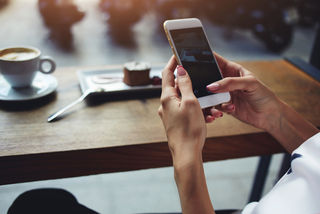Meditation
How and Why You Need to Break Up With Your Phone
Books, wellness resorts and meditation studios want you to turn off your phone.
Posted July 25, 2019

The overdependence of children, teens, men and women on their smartphones is so pervasive in everyday life that a slew of books, wellness facilities and even meditation studios are addressing the problem. Because the problem has become so extreme, there is a growing awareness about the consequences of cell phone overdependence. This increased awareness, fortunately, paves the way for solutions that focus on behavior change.
In terms of books, journalist Catherine Price's How to Break Up With Your Phone is one example of a book that provides a helpful tool for those who have become overdependent on their phone. The book begins with a simple quiz, including questions to determine how mild or severe the smartphone reliance may be. At the farthest, most pathological end of the spectrum lies individuals who engage in some of the following smartphone behaviors: texting while driving; sleeping with one's phone in the bed or under the pillow, and checking one's phone upon wake-up and just before closing the eyes for sleep. A factor that I especially appreciated about How to Break Up With Your Phone is the author's delineation of the way smartphones and apps have been created with an understanding and intention to trigger brain activity that operates on an addictive level - in other words, to hook you. The book is helpful in offering simple, concrete solutions to reduce the negative cognitive, emotional and societal impact of smartphones.
The intention and overall effect of books such as How to Break Up with Your Phone are positive and important in terms of addressing functioning on an individual level, but also on a community level. We are all aware of how people connect less emotionally because of the solipsistic reliance on the phone, but we don't yet know what the ultimate psychological and cognitive effects will be for generations of young people who have known no existence other than a digital, device-driven reality. What overdependence on phones means for one's emotional development, including the capacity for and comfort with emotional intimacy, is undoubtedly concerning.
Books, of course, are not the only guides that advocate the crucial need for humans to "unplug." Wellness facilities and resorts, too, are making a concerted effort to help individuals disconnect from the addictive behavior of cell phone use. At the all-inclusive Arizona wellness resort, Miraval, for example, guests are asked upon arrival to put their phones away and to avoid using them and to participate instead in the resort's activities such as yoga, nutrition and fitness classes. Other resorts and wellness facilities are making an effort to do the same. While guests appreciate the challenge, they simultaneously find detaching from their phones to be extremely challenging.
Another current guide for combating overdependence on smartphones is meditation studios. In terms of the practice of meditation, recent research from the U.S. National Center for Complementary and Integrative Health (2018) found that meditation in the United States is surging, with approximately 15 percent of adults reporting that they have meditated in the past year. In Los Angeles, for example, where I work and practice, meditation studios are cropping up across the city, and meditation facilities are popping up in other large cities and small towns. At meditation studios, guests are typically asked upon arrival to check in their cell phones so that individuals have a device-free zone for the duration of the meditation class.
If you worry - or know - that you have grown too reliant on your smartphone, take a few moments to think about what you may be losing as a result. Do you feel less connected to your family members or friends because your eyes are always glued to your device? Are you not as productive or do you lose time when you could be soothing your brain with other activities as opposed to feeding it the drug it craves? Taking some time to reflect on the psychological and relationship effects of smartphone overdependence can help you to gain awareness into what might be a problem, and to chart a course to make changes in your daily behavior.
References
Clarke TC, Barnes PM, Black LI, Stussman BJ, Nahin RL. Use of yoga, meditation, and chiropractors among U.S. adults aged 18 and over. NCHS Data Brief, no 325. Hyattsville, MD: National Center for Health Statistics. 2018.
Price, C. (2018).How to Break Up With Your Phone. New York, New York: Ten Speed Press.


